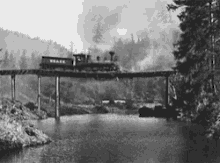Another in a series of really great articles in the Times, about cancer and dying. Fun topics that are kind of relevant.
“The most obvious” response, wrote the neurosurgeon Paul Kalanithi in “When Breath Becomes Air,” his memoir of a brilliant life cut short, “might be an impulse to frantic activity: to live life to the fullest, to travel, to dine, to achieve a host of neglected ambitions.” But cancer limits the energy for compacted living, and a longer view takes hold. “Money, status, all the vanities the preacher of Ecclesiastes described hold so little interest; a chasing after wind, indeed.”
Source: Timothy Egan | As He Lay Dying - The New York Times
I described it recently as watching a train wreck in slow motion. You know exactly what’s happening, what’s going to happen, but it’s surreal because it happens so slowly. I feel mostly fine, except that I don’t. I look mostly fine, except J notices that I’m slowly getting thinner (I disagree, but whatever).
This motivation to make the most of the time that’s left - it’s something we should all do, and not to wait until Something Bad Happens. It’s something I’m trying to do - to be more mindful of who and what is important to me.
But, that has limits. The kind of cancer I have is invisible. It’s inside every single bone, crowding out the cells that make red blood cells. So, although it’s cancer that is the cause, the only noticeable symptom is chronic anemia. Which means I get out of breath walking from my car to the office. Or walking up the stairs to my desk. Or playing ball with our dog in our back yard. Or, sometimes, just standing up. And I’m stuck in a “mental fog” much of the time, with facts, names, words hard or impossible to recall until it passes. In many ways, this would be so much easier if it was the kind of cancer that was operable - just lop off a chunk of me and be done with it. But, it’s not. So it looms there in the background, all the time, colouring every thought I have, every moment.
That kind of gets in the way of “live life to the fullest”, and it’s a pain in the ass. But I’m adapting. I drive to work, after riding my bike daily for over so many years. I walk more slowly now. I rest more. I’ve cut back - putting my PhD program on hold until. Until things get bad enough that I cry “uncle” and do a round of chemo, which will hopefully reboot the cells in my marrow by killing off the useless ones to make room.
Because it’s a cancer-as-slow-motion-train-wreck, I hear “well, if you have to get cancer, at least it was a good one!” and I know what they’re trying to say - that it’s not like I’m dying quickly, like Downie, or McCain, or so many others. But that’s also so many kinds of bullshit, because it’s definitely not “good”.
I kind of obsess about numbers. I created a visualization of some of the key blood test values over time, to make sense of what’s going on. Which then led me to do fun things like extrapolate the trend lines into the future to try to guess when the “uncle” point might be. My hematologist looked at me and said “why are you doing this to yourself? Let’s try without the data for awhile. How you feel is much more important than any of the numbers.” And, although we still run tests every month so we have the data, I’ll only see snapshots every six months when I meet with him, rather than obsessing over it every single month.
It’s a small change, but it’s already helping. Getting out of my head, and being more present. Living life to the fullest, whatever that might mean.
